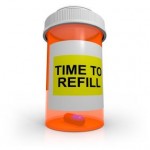Reciprocal Regulatory Approval To Reduce Drug Prices
 Senators Ted Cruz (R-TX) and Mike Lee (R-UT) recently introduced the RESULT Act, which would allow drugs and medical devices approved in certain other countries to be allowed in the U.S. as well. The countries included are European Union members, Israel, Canada, Japan, and Australia.
Senators Ted Cruz (R-TX) and Mike Lee (R-UT) recently introduced the RESULT Act, which would allow drugs and medical devices approved in certain other countries to be allowed in the U.S. as well. The countries included are European Union members, Israel, Canada, Japan, and Australia.
The benefits of this act would be significant. Professor Daniel Klein of the Mercatus Institute at George Mason University and Professor William L. Davis of the University of Tennessee at Martin have surveyed economists on this policy, and a majority agree it would improve patients’ access to safe and effective drugs.
The problem with the status quo is that that the Food and Drug Administration’s processes are heavily biased against one type of error and in favor of another type of error. It has been often noted that no FDA employee has ever been hauled in front of a Congressional committee to explain why he is preventing patients from using a new medicine. The media and politicians insist that one serious side effect or death from taking a drug is too much. This sentiment leads to bad policy.
If a drug has a side effect that would kill one patient of every hundred who took it, but cured 99, the FDA would deny the drug. This use of power clearly does not optimize people’s welfare.
As long as risks and benefits are clearly stated, patients should be free to make their own choices. The RESULT Act is hardly a purely libertarian solution, because it still gives government agencies power over patients’ choices. Nevertheless, it expands our choices in a way that no reasonably moderate person could oppose.


I don’t know why the FDA doesn’t permit a color label. Green approved by the FDA, and use other colors to designate other concerns i.e. yellow for approved in other countries, but not US FDA, red early limited approval for serious disease situations where there is benefit.
That would be a very good idea.
The FDA worries that the approval process in the European Union is not as rigorous as in the United States (more rigorous approval process isn’t necessarily desirable). This view is especially true of countries in what was once considered Eastern Europe. But there are plenty of ways to work around this problem. Reciprocal regulatory approval could apply to only certain countries, or reciprocal approval could be conditioned on, say, three EU countries (or Japan) approving a give drug or device. Or as Al suggested, disclosure that a drug is only provisionally allowed because it was approved in Europe is another possibility.